You would be hard pushed to find a baker who hasn’t had to put up prices at least once in the past year because of rising costs.
Butter has been subject to some of the greatest increases, with AHDB data showing the wholesale price soaring from £3,000 a tonne in summer 2021 to more than £6,000 by spring last year. The price rises have been driven by factors including higher costs of fuel, energy and fertiliser.
“Russia’s invasion of Ukraine has not only had the impact of increasing energy costs across the continent, but as both are also leading exporters of fertiliser and wheat, disruption in these markets has further added significantly to cattle feed therefore overall milk production costs,” explains Robert Lambert, marketing manager at Ulrick & Short.
Passing on costs
Bakers were forced to pass on some of the increased costs to customers, and many looked to make savings by increasing efficiencies and reducing product ranges.
“The rising price of butter has had a significant impact on the bakery market,” says Baker & Baker R&D director Jon Adams. “Bakers and manufacturers have had to take this into account as part of pricing discussions with retailers, which has a knock-on effect with consumer prices.”
Faced with rising butter costs, bakers have adopted a range of strategies to mitigate the impact on prices.
Many bakers are looking at their recipes to try and remove their dependencies on dairy fats and oils
These include reducing finished weight and pack sizes to maintain the product quality while using less ingredients, although some customers may be unhappy with this approach. Other options include making savings in the packaging used, or reducing waste. Some businesses have tried to reduce costs by purchasing in larger quantities and switching supplier but bakers report that this has been a struggle as many suppliers have implemented spot pricing due to high volatility.
Ultimately, many bakers have opted to alter recipes. In a recent Ulrick & Short webinar, participants were asked how they intend to tackle the challenge, and the most common response was proactive product reformulation.
“Many bakers are looking at their recipes to try and remove their dependencies on dairy fats and oils, and instead searching for more stable, long term solutions,” adds Lambert.
The alternatives include vegetable oils such as rapeseed, sunflower, and sustainable palm, as well as butters made from coconut oil or shea butter.
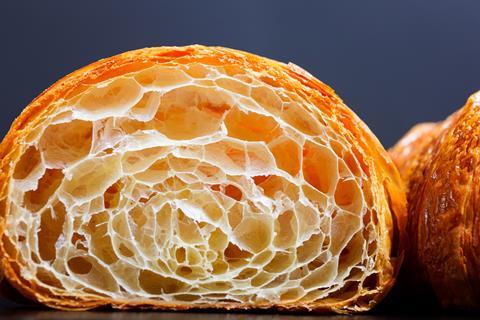
While vegetable fats are typically cheaper that dairy ones, they are also subject to the influence of supply and demand issues, and the corresponding changes in price.
Switching from a dairy fat to a vegetable one can also impact the flavour of baked goods, of course, and can be difficult in the case of some products.
“Butter is a functional ingredient, the removal of which can have considerable impacts to product quality if not done correctly, whether this be texture, mouthfeel, structure, indulgence or flavour,” Lambert explains.
Adams points out that in the case of laminated bakery, where butter replacement isn’t so easy, Baker & Baker has had to absorb or pass on the cost to maintain quality.
The complex and varied role that butter plays in baked goods means there isn’t such a thing as a one-size-fits-all replacement, and some vegetable or plant-based oils require additional ingredients to help improve taste and texture, with added associated costs.
Recipe formulation
“Additionally, some alternative oils may not be as readily available or affordable as butter, particularly for small and independent bakers, points out Adams. “The use of alternative fats also requires a different approach to recipe formulation and may require experimentation and testing to achieve the desired results.”
AAK is currently working with bakery customers to help them reformulate to control costs and provide butter alternatives made from blends of plant-based oils and fats.
And, according to AAK marketing manager Helen Flower, plant-based alternatives may not only be cheaper than dairy fats, they can be less expensive to use.
“They can be stored at ambient temperature for a start, and don’t need tempering before use,” she points out. “In fact, they can be pumped straight into the batter, and then take less energy to mix. In this case, less time is needed to move and unwrap the ingredient, and less waste to dispose of too.”
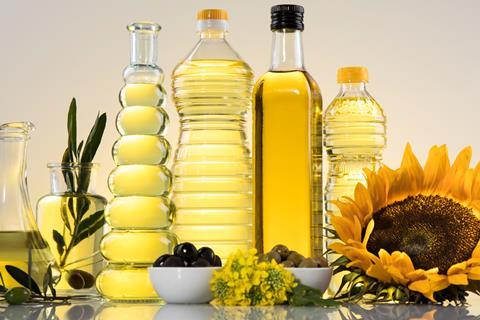
Ulrick & Short offers the Delyte starch-based fat replacement range that has been developed to replace the functional properties of fats in a range of applications. The company says that, depending on application, up to 50% fat reduction is possible.
“Much of our Delyte range is based upon tapioca – if viewed under a microscope, tapioca has smooth, spherical granules, making it a perfect fat mimetic,” explains Lambert. “Using tapioca as a base crop and enhancing the functionality through physical processing methods, we’re able to achieve significant levels of fat reduction and with the desired indulgent and textural properties for many bakery applications.”
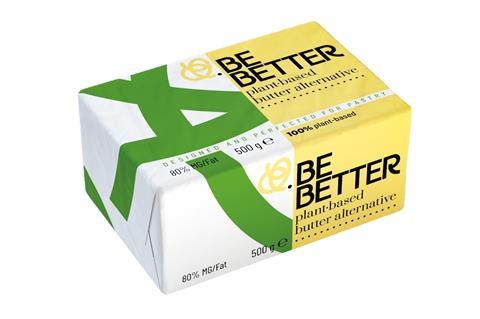
A relative newcomer to the market is Be Better, a plant-based butter brand co-founded by pastry chef Marike Van Beurden. Launched last year, it has been developed as a 1:1 ingredient swap with dairy butter for all pastry applications. It contains a blend of vegetable oils and fats (shea, organic coconut, and rapeseed) that is claimed to mimic the melting behaviour of dairy butter.
Be Better is described as having a neutral taste that enables chefs to bring to the forefront flavours they want to highlight, like chocolate and fruit, which are sometimes hidden by the strong flavour of dairy butter.
“Be Better is designed to be an easy replacement of dairy-butter with zero compromise on quality, workability and price,” says Van Beurden. “Moreover, as it is very low processed, clean and free from palm and artificial ingredients, it fits the high standard of pastry chefs.”
Other benefits
While cost reduction is the reason many bakers are exploring dairy alternatives, there are other potential benefits.
“Those looking to reduce the saturated fat content of their products to meet nutritional targets, and those aiming to produce vegan versions of established favourites are doing so too,” says Flower at AAK. “Our plant-based butter alternatives are being used to achieve both objectives.”
Despite such benefits, one potential barrier to the wider take-up of butter alternatives is that people don’t like change, suggests Van Beurden.
”Although some bakers are switching to plant-based butter, dairy is what they are trained to work with and they are resistant to change. However, many believe a switch to plant-based will need to happen,” he adds.



















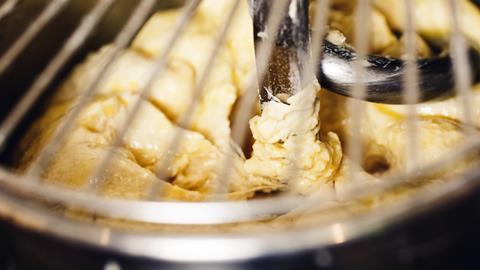

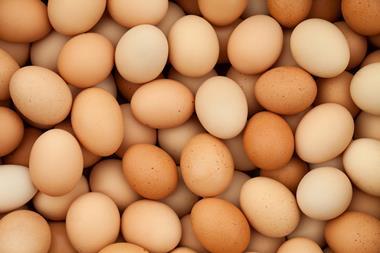


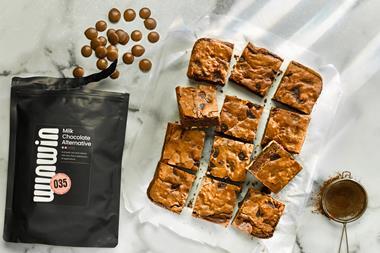
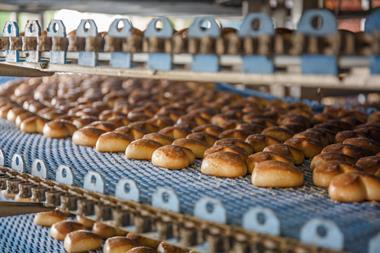
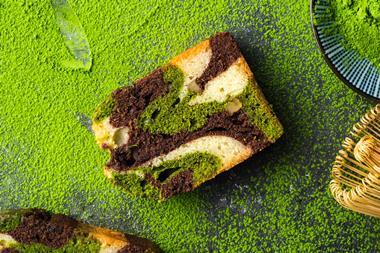
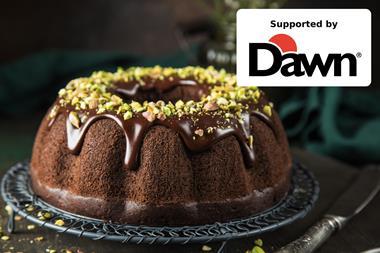
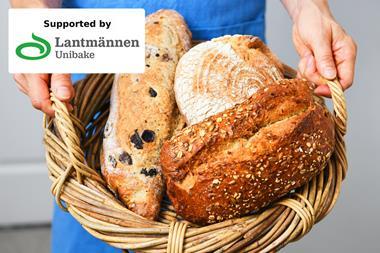
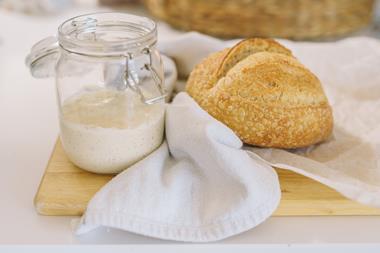

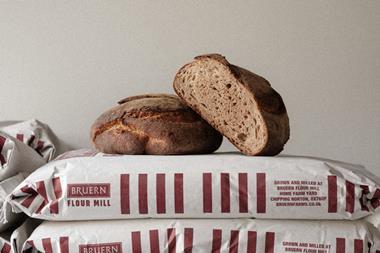

No comments yet